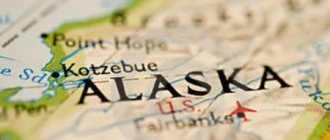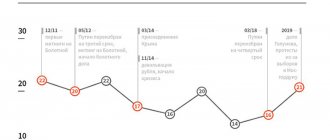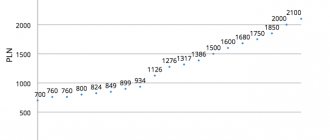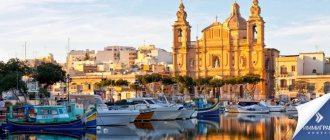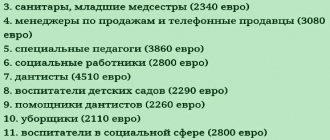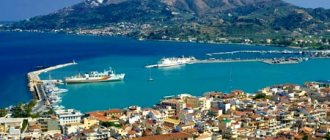The Netherlands is a country not only of tulips, cheese, Flemish painters and a liberal attitude towards soft drugs. First of all, it is a state with the sixth largest economy in the EU (and 16th in the world), which is based on heavy industry, transport, mining and agriculture. The headquarters of such giants as Shell and Philips are located in the Netherlands. Most of the economic indicators on the basis of which a state’s rating of living standards is determined are traditionally among the best in Europe. As a result, there is quite high competition in the labor market, but nevertheless there are always vacancies. So how and where can a foreigner find a job in Holland?
Requirements for candidates
Requirements for applicants:
- Knowledge of languages. To obtain a residence permit you will have to pass a Dutch proficiency test. Knowledge of English, German, Danish or Swedish will be a plus. Otherwise, you can only count on seasonal unskilled work that does not require a long-term MVV visa with a stay in the country of up to 90 days.
- Qualification confirmations: diplomas of higher education from European or leading Russian educational institutions;
- certificates of work experience in the profession, letters of recommendation from previous employers;
- certificates of completed advanced training courses, participation in seminars, practices, conferences;
- a degree will greatly improve your chances.
Immigration directions
For residents of Russia, there are 5 ways to emigrate to the Netherlands:
- Employment.
- Entrepreneurial activity.
- Marriage (official or civil).
- Education.
- Refugee status.
Job
The Netherlands is part of the European Union. Accordingly, priority in providing jobs is given to EU citizens. A resident of Russia may be offered a job in Holland. But only if the employer proves that he did not find the right specialist in the European Union.
However, since 2005, the country has had a program called “Kennismigrant” (“Immigration of Knowledge”). Under this program, Dutch companies invite foreign workers. It does not require confirmation of the absence of EU specialists.
The main factor is the minimum wage:
- For persons under 30 years old – about 37 thousand euros per year (before taxes).
- For persons over 30 years old – 50 thousand euros per year (before taxes).
Business
The state treats immigrant entrepreneurs favorably. There are no special restrictions for companies opened by foreigners. To open your own business in the country, you should:
- Select the legal form of companies.
- Create a business plan.
- Register your organization with the Chamber of Commerce.
- Obtain a tax payer identification number.
- Equip an office.
- Arrange the necessary insurances.
Marriage
Informal
In terms of personal freedoms, the Netherlands occupies one of the leading places in the world. Same-sex marriage is officially permitted in the country. However, a stamp in the passport is not a prerequisite for granting a residence permit or even citizenship.
To qualify for citizenship status, it is enough to have a close relationship with a resident of the state. To obtain citizenship you need:
- Have lived with your common-law spouse/partner for at least 3 years:
- Holding a residence permit or citizenship.
- Receiving a monthly income of 1.5 thousand euros.
- Stay on Dutch soil for the entire 3-year period.
However, in the event of termination of relations with a Dutch man, a foreigner who has not managed to acquire citizenship will have to leave the territory of the state.
Official
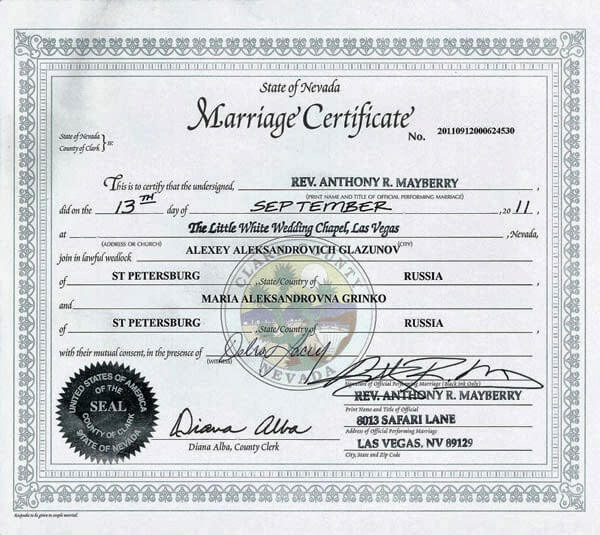
Sample marriage certificate
If the marriage is legally confirmed, the immigrant is not required to remain for a continuous 3-year stay to obtain citizenship. Moreover, the Netherlands recognizes marriage certificates issued in another country.
However, you should be prepared for document authentication checks, various tests and visits from the immigration service. Department officials carefully check the authenticity of marital relations. This is how the authorities try to minimize the risks of registering fictitious marriages.
Studies
A diploma from a Dutch university is a good help for those wishing to settle in the kingdom.
The basic package of documents for admission includes:
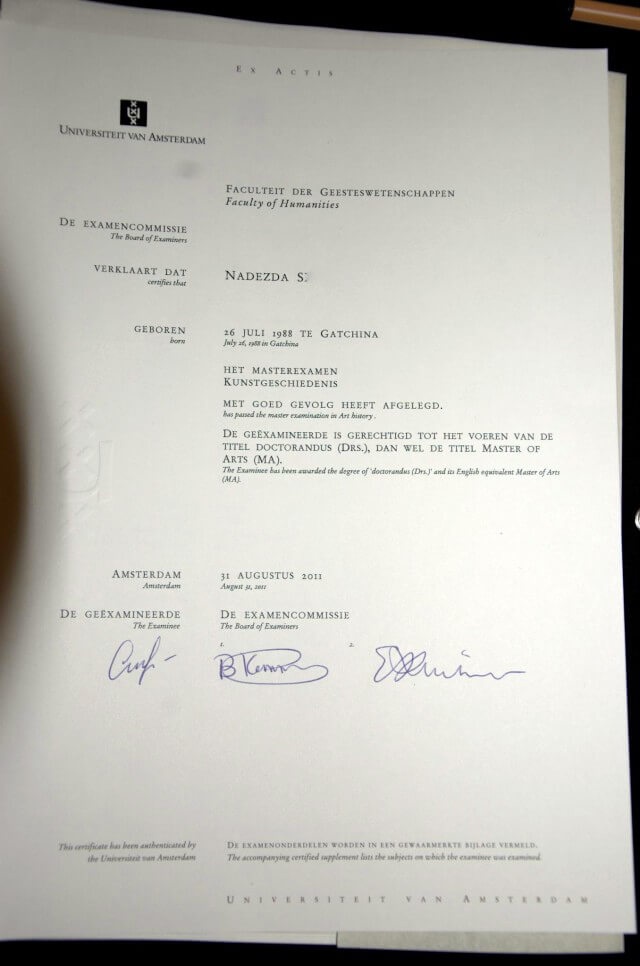
Sample of a Dutch education diploma
- Completed application form.
- Summary.
- Motivation letter.
- Recommendations.
- A diploma of previous education received in Russia or another country.
- Certificates of assessments.
- Application fee.
- Certificate of language proficiency. The Netherlands has more programs in English than other non-English speaking countries. Therefore, many foreigners confirm their knowledge of this particular language with TOEFL or IELTS certificates.
Upon completion of training, foreigners receive a one-year visa to search for work in a simplified manner. At the same time, you are allowed to start looking for a place already from your student days. Students from non-EU countries are issued work permits. The only condition is that weekly working hours do not exceed 10 hours.
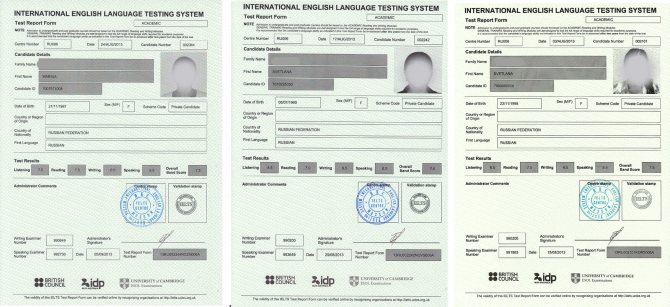
IELTS Certificates
Refugees
Despite liberal laws, the Netherlands is wary of asylum seekers. Each applicant for refugee status is carefully checked. The foreigner will have to confirm the fact of oppression in his homeland and danger to life for any reason.
It happens that the consideration of a case takes more than one year. In some cases, the process lasts for a decade or more. All this time the immigrant lives in a refugee camp. The citizen is paid an allowance (on average 55 euros per week). A foreigner does not have the right to work. Only people whose decision takes years can find employment.
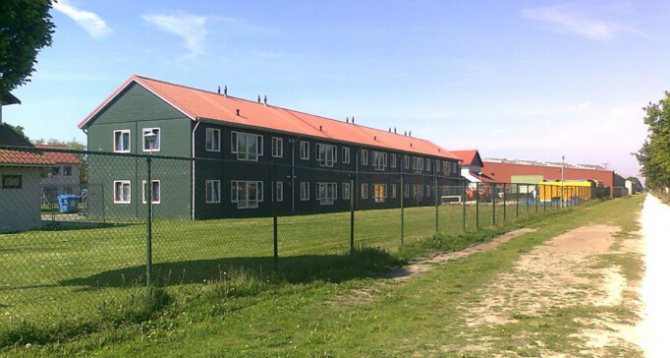
Refugee camp in the Netherlands
Jobs in Holland
Of the vacancies offered for visitors in the Netherlands, acceptable options are driver, builder, loader, handyman, mechanic and other blue-collar jobs. A woman without a higher education can work as a nanny, a maid, a care worker for the elderly, a packager of products in a supermarket, or a sorter in a warehouse. Positions are offered for bartenders and waiters in cafes, hotel employees and others. They pay based on actual time - 6-9 € per hour.

By specialty
Qualified personnel are also in widespread demand. The greatest chances are for engineers, doctors, and bank employees. The working day is 8 hours, five-day week. Some organizations practice a slightly different schedule, in compliance with standard time standards.
Since 2004, a program has been in place to attract qualified specialists to the Netherlands. Applicants who use it do not have to fear competition with local residents - they are provided with assistance in preparing documents and other assistance.
The salaries of specialists range from 3-4 thousand euros per month.
Employment process
Getting permission
List of documents for obtaining a work permit:
- Valid passport;
- Two photos as in a passport;
- Completed visa application form;
- Labor contract;
- Sponsorship letter of intent (download sample in Russian, download in English);
- Providing medical insurance;
- Confirmation of the availability of financial resources for the entire duration of your stay in the country.
A work permit (TWV) is issued in conjunction with a residence permit (TWV procedure) and is not required for:
- students;
- persons who have applied for refugee status;
- persons with long-term resident status;
- students within one year after graduating from a Dutch university;
- holders of short-term work visas (up to 90 days);
- family members of individuals holding such permission;
- persons with Croatian citizenship;
- legal successors within companies;
- seasonal workers.
If the applicant is immigrating as a highly qualified worker, researcher or as a Blue Card holder, the contents of the package of documents must be agreed upon with the employer, research institution or recognized sponsor inviting the employee to the Netherlands.
Applying for a work visa
Employment in Holland requires a work visa. There are only four of them:
- For three years. After this period, you can apply for a longer stay in the country. It gives the right to continue working without extending the work visa.
- Conditional.
- With a short term. Valid for 24 weeks, with subsequent possibility of extension.
- Temporary, which will not be extended.
In addition to the application, in 2021 you will need to attach documents from the organization providing the work.
Documentation
It would be best to send all the papers to the employer so that they can submit the entire package themselves. Another option is to visit the embassy in person. An applicant for a vacancy must collect the following documents:
- Photocopies of completed pages in the passport;
- An employment contract signed by both parties indicating the salary (copy);
- Available diplomas and certificates (photocopies), translated and certified.
The employer represents:
- Company registration certificate (original);
- Publication of a vacancy through the state employment service;
- Proven actions to find a worker from the local population;
- The number of people who responded to this vacancy with the reasons for refusal;
- Proven search for employees in other EU countries.
Visa cost
In 2021, it is not cheap - 861 euros, and you will have to pay 380 for the extension. If there is a refusal, the money will not be returned.
Extension of a visa
Without a valid work visa, the migrant must leave the country. Renewal options:
- contacting the nearest migration department at the police station with an application for a visa extension;
- renewing an employment contract with a previous employer or signing it with a new employer.
Applying for a visa to work in the Netherlands
It is not possible to work in Holland without obtaining the appropriate entry document. If there is an employer, it is quite simple to register. On average, it takes 3 months to review each applicant’s dossier.
Typically, foreigners entering the Netherlands for work purposes apply for a long-stay MVV visa. This is a temporary residence permit, which the embassies and consulates general of the kingdom abroad have the right to provide. The document is one-time with the possibility of extension. They are allowed to be used for six months after issue. That is, the maximum period of stay is 6 months.
Candidates for an MVV visa submit the following documents to the diplomatic mission:
- Completed and signed application form.
- Valid passport.
- Photo cards:
2 copies.
Colored.
35 by 45 mm.
Made a maximum of six months ago.
- Confirmation that the purpose of the trip is to work in the Netherlands:
+Work permit (TWV). The following are exempt from filing this paper:
See also: Work in the Czech Republic for Russians: vacancies 2021 without knowledge of the language
-Temporary workers whose stay does not exceed 3 months.
-Highly qualified specialists whose knowledge and experience are important for the Dutch economy.
-Graduates of local universities (if they found a job within 1 year after receiving their diploma).
-Relatives of MVV visa holders with the right to work.
+A contract with the employer or guarantees of its conclusion (for example, in the form of an invitation to work). The contract specifies the planned salary (from 1.5 thousand euros monthly).
+Diplomas and certificates (if necessary, submitted by highly qualified workers).
- If necessary, the employer additionally confirms that:
-Citizens and residents of Holland and the EU did not respond to his vacancy.
-The citizens and residents who responded to the employment offer did not meet the established requirements (for qualifications, for health reasons, etc.).
Within 3 weeks after submitting the application and supporting documentation, applicants must pay the visa fee. Without payment, the procedure for considering the case is impossible.
average salary
According to the Dutch Central Planning Bureau, the average salary in the Netherlands in 2021 was 2,855 euros per month before taxes. The annual income of a local employee is 37,000 euros. After all mandatory deductions, the average monthly salary in Holland is about 2,152 euros . It is noteworthy that specialists in the public sector, including the television sector, are not legally entitled to earn more than 181 thousand euros per year.
In order for a local employer, when hiring a foreign specialist, not to have to prove to the authorities that the Dutch or EU citizens are not applying for the vacancy, highly qualified foreign workers planning to obtain a residence permit in the Netherlands for the purpose of employment are required to enter into a work contract with a monthly salary of at least:
- 4,404 euros for persons over 30 years old
- 3,229 euros for persons under 30 years of age
- 2,314 euros for foreign graduates of local universities (first year after graduation)
For individual specialties
| Professions | Average monthly salary (in euros) |
| Architects | 5.2 thousand |
| Dentists | 5 thousand |
| IT specialists | 3.5-4.5 thousand |
| Lawyers | 4 thousand |
| Civil Engineers | 3.4 thousand |
| University teachers | 3.2 thousand |
| Mechanics | 3.1 thousand |
| Electrical Engineers | |
| Accountant | 3 thousand |
| Managers | 2.5-3 thousand |
| School teachers | 2.8 thousand |
| Bartenders | 1-2 thousand |
| Waiters | |
| Loaders |
Immigration to the Netherlands from Russia in 2021
The stable economy of this country has become the reason for people who are ready to move to choose Holland as a haven for permanent residence.
Immigration to the Netherlands is an excellent opportunity to successfully find a job and reach a new social level, enjoying the wonderful mild climate and the hospitality of local people.
It is for this reason that many Russian citizens are interested in the issue of obtaining a residence permit in the Netherlands (MVV), integration methods, as well as obtaining an internal passport in 2021.
Immigration to Holland
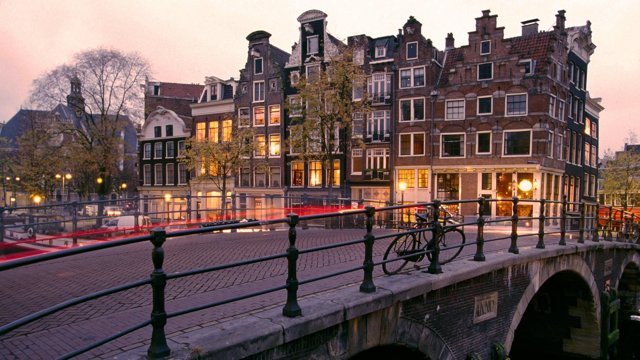
The process will be easier and more productive if you familiarize yourself in advance with the procedure for collecting, processing and legalizing the required package of documents. The number of people pondering the question of how to move to this country is regularly growing. In 2021, moving can happen in several ways.
Immigration to the Netherlands from Russia involves learning the language, as well as becoming familiar with the concepts of life in the country where the migrant plans to stay permanently. There is an introduction to the integration course developed for those entering Holland for the purpose of further assimilation.
Where to start preparing for your move
A person who is thinking about how to move to Holland should first of all take into account that completing a package of documents costs 350 EUR. There is a lot of work ahead for a migrant who wants to realize himself in a new country. In the classic case, permanent residence is possible after 5 years of continuous (non-travelling) residence in the state.
Moving to the Netherlands in 2021 and registering resident status requires having your own bank account in the country and being willing to take an exam on social integration - the degree of merging with and adapting to Dutch society.
Package of documents
You need to collect and provide:
- statement;
- receipt of payment of the fiscal fee;
- confirmation of monthly financial well-being (salary, scholarship or guarantee from a sponsor);
- valid international passport;
- health insurance;
- certificate of absence of dangerous or chronic diseases.
How to find a job
Through the Internet
Without intermediaries, you can find a job via the Internet by looking at advertisements on thematic websites. A properly written resume will interest employers. Since 2004, the “kennismigranten” program has been in effect for programmers, mathematicians and engineers. After its introduction, work in Holland became more accessible for Russians. Organizations that are interested in professionals from abroad must apply for registration with the Immigration Service (IND). Registered companies do not need to prove that they were unable to hire a Dutch employee; they can immediately invite foreign citizens. The procedure for processing documents is greatly simplified, since the employer himself issues an invitation through the official website of the program.
Specialized agency
Another way is to contact a specialized agency. In this case, the search for a place, negotiations with the host party and other bureaucratic nuances are taken over by the intermediary. As a rule, the applicant immediately pays the basic contribution (in 2021 about 100 euros), and the remaining amount (600-700) is deducted from the Dutch salary over several months.
Features of internship in the country
For students at Dutch universities, internship in a real company is a mandatory element of the educational process. A student from the CIS can also undergo an internship in Holland after completing the first year if there is an agreement between his university and a company from the Netherlands.

A Russian, Kazakh, Ukrainian, or Belarusian will need:
- work permit (TWV ) obtained from the employer ;
- VKV visa (for a short stay in the country) or MVV (for a long stay);
- an internship agreement (instead of a TWV), signed by the university and the employer, if the internship is provided for in the curriculum of the educational institution.
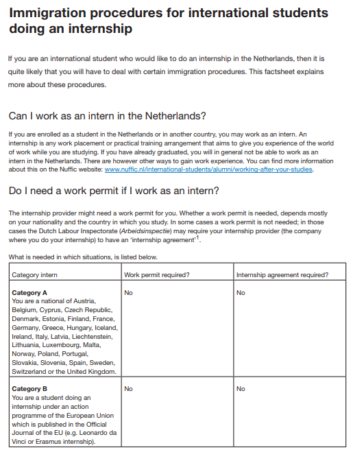
Starting a business in Holland
The first step to creating a business in Holland for an emigrant will be choosing a field of entrepreneurship. The legislation provides foreigners with the same conditions as for local businessmen.
Let's look at a few:
- Limited Liability Organization
Entrepreneurs whose share in the business is more than 5% are subject to tax on the sale of securities. There are no requirements for authorized capital by law.
- General partnership
In this case, the company is owned by several businessmen. A pre-drafted agreement is required that describes the portions of the deposits and the share of income.
- IP
An individual entrepreneur runs the business solely. It is possible to hire workers.
In addition to the previously described forms of organizing your business, in the Netherlands it is also possible to open a corporation, partnership, foundation, association and branch of any foreign company.
Advantages and disadvantages of working in Holland
Pros of living in Holland
- Most Dutch people are open and friendly people who speak English. Additionally, many cities have large expat communities.
- A strong economy and favorable geographical location make it possible to conduct a profitable business in the Netherlands.
- Holland is a very democratic, free and tolerant country.
- Ideal transport infrastructure, including many bike paths.
- The country has a low crime rate, a transparent legal system and virtually no corruption.
- The Netherlands is very beautiful, the cities have many canals and well-kept parks.
- High-quality medicine and an effective education system.

Disadvantages of living in Holland
- High taxes and rental costs.
- Some foreigners are dissatisfied with customer service and the general service industry in Holland, including restaurants and hotels.
- In the Netherlands there are many rules and written norms of behavior that you should not go beyond. You can understand what we are talking about only after living in the country for a long time.
- There are few parking spaces, traffic jams and incredible fines for violating traffic rules.
- Foreigners from third countries, including Russia and Ukraine, find it very difficult to find legal work in the Netherlands.
- There are a lot of people per square kilometer in Holland. The western part of the country is especially densely populated.
- From October to April, a humid climate prevails in the Netherlands, and in summer the weather can change dramatically in just a few hours.
Seasonal work in the Netherlands
Labor migrants from the CIS republics often use the opportunity to earn money through seasonal work in the Netherlands. They can be used to harvest vegetables, fruits, and many other agricultural crops at certain times of the year - in summer and early autumn. It was during this period that there was a labor shortage in the Dutch agricultural sector. You can also try working on tulip plantations, which are grown massively in Holland and are famous all over the world.
See also: Work in China for Russians vacancies 2021 without knowledge of the language
Most migrant workers come to the Netherlands as seasonal workers. The main countries supplying seasonal workers are Russia, Ukraine, Belarus, and Kazakhstan. It is possible to find such a job in the Netherlands on your own, but it is difficult. As a rule, a brigade begins to form in its homeland. She usually gets to Holland by bus. At the same time, the employer is already waiting for migrants and has previously managed to create quite comfortable living conditions for them.
The working day for seasonal work lasts 8–10 hours with a 45-minute break for lunch. Payment can be either hourly or piecework (based on the amount of work performed). On average, you can get up to one and a half thousand euros or more per month. As a rule, seasonal workers come to the Netherlands for a period of less than three months, so they do not need a work visa. As a percentage of the total number of labor migrants coming from Russia, Ukraine, Belarus and Kazakhstan, seasonal workers make up more than 60%.
